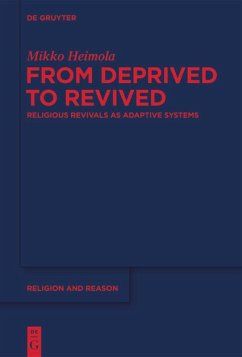It is a truism that religion has to do with social cohesion, but the precise nature of this link has eluded scholars and scientists. Drawing on new research in religiously motivated prosociality, evolution of cooperation, and system theory, this book describes how fluctuations in individuals' strategic environment give impetus to a self-organizatory process where ritual behavior works to alleviate uncertainties in social commitment. It also traces the dynamic roles played by emotions, social norms, and socioeconomic context. While exploring the social functions of ritual and revivalist behavior, the book seeks to avoid the fallacies that result from disregarding their explicit religious character. To illustrate these processes, a case study of Christian revivals in early 19th-century Finland is included. The thesis of the book is relevant to theories of the evolution of religion and the role of religion in organizing human societies.
Hinweis: Dieser Artikel kann nur an eine deutsche Lieferadresse ausgeliefert werden.
Hinweis: Dieser Artikel kann nur an eine deutsche Lieferadresse ausgeliefert werden.








